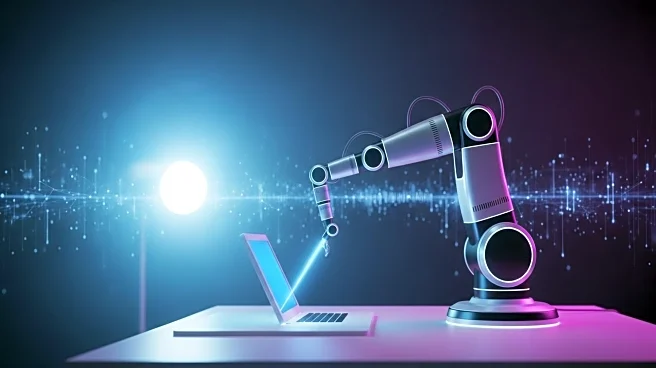What's Happening?
ChatGPT has introduced a new AI agent feature that allows users to automate various tasks, such as booking appointments and summarizing emails. This capability, available to paid users since July 2025, aims to simplify daily life by handling routine tasks. Users can input specific prompts, and the AI agent performs searches and actions based on these instructions. However, the tool requires users to input personal information, such as contact details, to complete certain tasks, raising concerns about data privacy. The AI agent pauses actions when sensitive information like payment details is needed, allowing users to manually input this data to maintain security. Despite its potential to streamline tasks, users are advised to exercise caution when sharing personal information with AI tools.
Why It's Important?
The introduction of AI agents like ChatGPT's represents a significant shift in how individuals manage daily tasks, potentially reducing the time and effort required for routine activities. This development could impact various sectors, including personal services and administrative roles, by automating tasks traditionally performed by humans. However, the reliance on AI for personal data handling raises privacy and security concerns, which could affect user trust and adoption rates. As AI tools become more integrated into daily life, balancing convenience with privacy protection will be crucial for widespread acceptance. Businesses offering AI-driven services may need to address these concerns to maintain consumer confidence.
What's Next?
As AI agents continue to evolve, developers may focus on enhancing security measures to protect user data and address privacy concerns. Future updates could include more robust data protection protocols and transparency in how information is used and stored. Additionally, regulatory bodies might consider implementing guidelines to ensure AI tools comply with privacy standards. Users may also become more discerning about the types of tasks they delegate to AI agents, opting to retain control over sensitive information. The ongoing dialogue between developers, users, and regulators will shape the future of AI-driven task automation.
Beyond the Headlines
The rise of AI agents could lead to broader societal changes, such as shifts in employment patterns and the nature of work. As automation becomes more prevalent, certain job roles may diminish, while new opportunities in AI development and oversight emerge. Ethical considerations regarding AI's role in daily life, including its impact on human interaction and decision-making, will likely become more prominent. The integration of AI into personal and professional spheres may also influence cultural attitudes towards technology and privacy.









